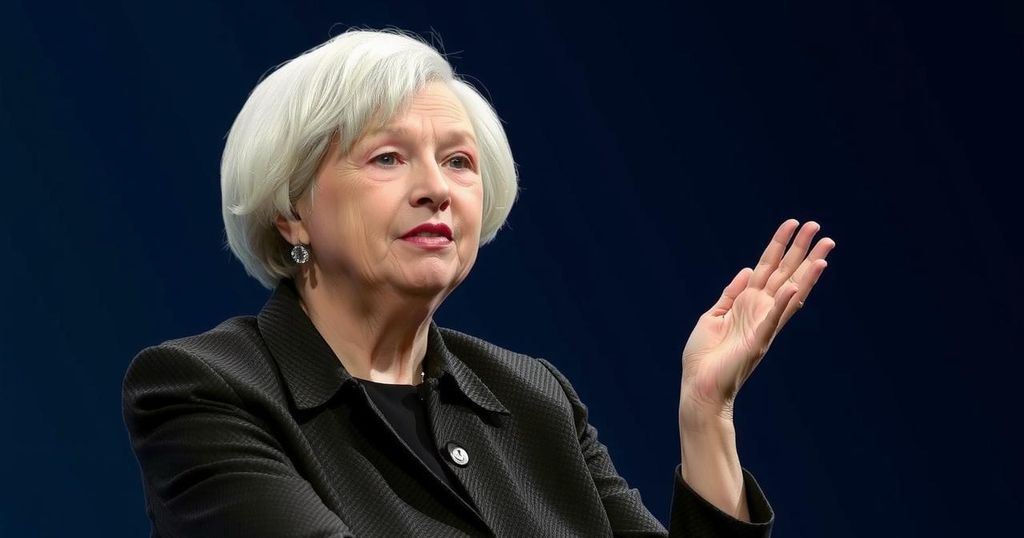U.S. Treasury Secretary Janet L. Yellen criticized China’s “opaque” lending practices, advocating for accelerated debt relief for low- and middle-income countries. Ahead of the IMF and World Bank meetings, she pointed out the burdens of debt on economic development and acknowledged the ongoing challenges faced by these nations.
During a recent interview, U.S. Treasury Secretary Janet L. Yellen expressed her concerns regarding China’s “opaque” lending practices and called for global financial institutions and other creditor nations to expedite debt relief efforts for low- and middle-income countries. This statement coincided with the upcoming annual meetings of the International Monetary Fund (IMF) and the World Bank, where key decision-makers will convene to discuss pressing global economic issues. Secretary Yellen highlighted that many poorer nations are grappling with significant debt burdens that hinder their ability to invest in sustainable development, pandemic response, and climate change initiatives. She emphasized that these financial challenges are exacerbated by persistent high interest rates, with inflation pressures easing but geopolitical tensions, particularly due to ongoing conflicts in the Middle East, posing additional risks to energy markets. In her remarks, Yellen acknowledged the criticisms directed at both the IMF and the World Bank for their slow response to the financial crises and the demands for economic reforms—often accompanied by austerity measures—that provoke social unrest. Nevertheless, she plans to commend the progress made by these institutions under the Biden administration, particularly regarding enhancements in lending capacity and the faster approval processes for new projects. The ongoing global debt crisis necessitates a comprehensive international initiative aimed at alleviating these financial pressures, extending beyond merely assisting countries at the precipice of default. As discussions unfold in Washington this week, the focus will be on fostering a collaborative approach to managing global debt and ensuring the financial stability of vulnerable economies.
The topic of debt relief for low- and middle-income countries is increasingly relevant in light of global economic shifts and crises, including the impacts of inflation, high interest rates, and geopolitical conflicts. Countries facing substantial debt burdens often struggle to allocate resources effectively for critical initiatives such as infrastructure, health care, and environmental sustainability, which are essential for long-term development. China’s lending practices, characterized by a lack of transparency, have also raised concerns about the implications for debtor nations. The role of multilateral institutions like the IMF and World Bank has come under scrutiny as they seek to balance structural reform requirements with the urgent need for financial assistance. As the global economy navigates these challenges, the dialogue around debt relief is vital to fostering resilience and sustainable growth in developing economies.
In summary, Secretary Janet L. Yellen’s critique of China’s lending practices underscores the need for urgent debt relief for low- and middle-income countries, highlighting the significant challenges these nations face due to mounting debt. As the IMF and World Bank prepare for their annual meetings, the emphasis on enhancing their support mechanisms is crucial in addressing the global debt crisis. A collaborative global approach is necessary to ensure that vulnerable economies can pursue essential development initiatives without the hindrance of overwhelming financial burdens.
Original Source: www.nytimes.com






